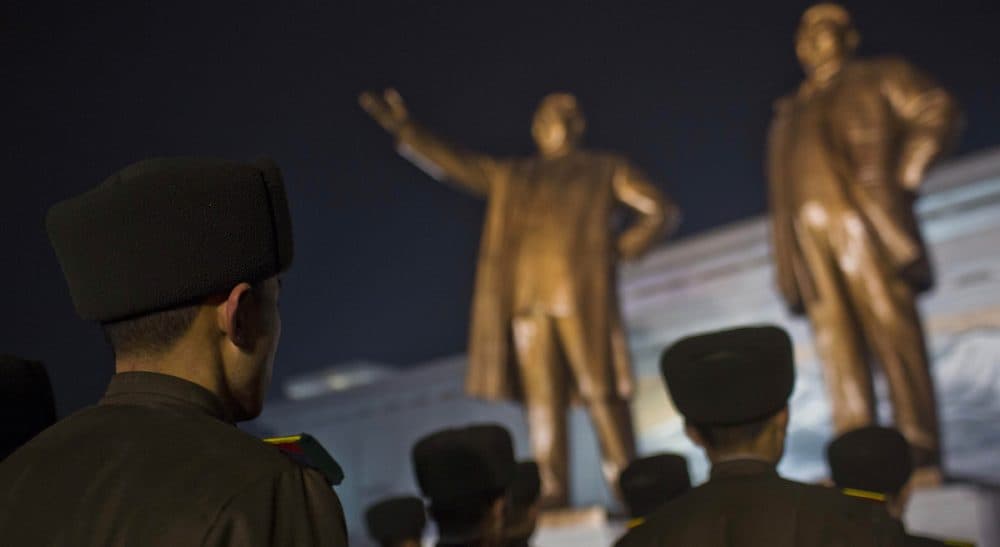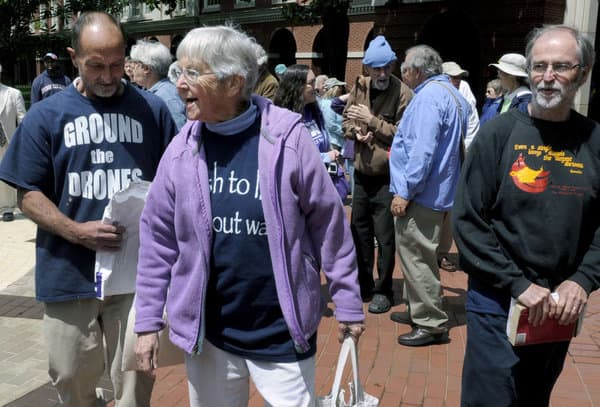Advertisement
Crimes Against Humanity: Why We Must Never Become Numb To The Phrase

This week has witnessed (what seems like) daily snowstorms, Ukraine teetering on the brink and that quadrennial spectacular known as the Olympics. But there were two other events worth noting. They are very different in scale and meaning but linked by a concept that defined the 20th century: crimes against humanity.
The first was the release of a report by a United Nations Commission of Inquiry on Human Rights in North Korea. The panel documented, “extermination, murder, enslavement, torture, imprisonment, rape, forced abortions and other sexual violence … the forcible transfer of populations, the enforced disappearance of persons and the inhumane act of knowingly causing prolonged starvation.” Also among the many crimes documented in this report is the mistreatment of entire families for the perceived errors of any one family member, and thus children born into and living in gulags, in this case, literally for the “sins” of their parents.
It should cause us to stop in the same way we wish people had done when the Nazis took power, on the eve of Rwandan genocide, or as Saddam Hussein used poison gas against his own citizens.
With near constant reports of violence in the world today — in Syria, Iraq and Afghanistan — it would be understandable to mentally file this away with all the other terrible things that happen every week. But that phrase, “crimes against humanity,” should give us pause. It should cause us to stop in the same way we wish people had done when the Nazis took power, on the eve of Rwandan genocide, or as Saddam Hussein used poison gas against his own citizens.
The U.N. report demands that we stop and take note. The members of the panel understandably have reacted with outrage, seeking, among other things, that the Kim regime be prosecuted. This is unlikely to happen for a number of reasons, including the fact that any action against the North would require the cooperation of China even though the report directly criticizes China.
But one of the ironies in human rights is that moral urge to punish the offender often makes things worse. There is social science data that suggest, for example, that sanctions are more likely to cause an increase in human rights abuses rather than reduce them. This makes sense when you consider that the targeted country could feel threatened and therefore respond with an internal crackdown.
In some cases, the best long-term solution — and short of invasion, there are only long-term solutions — is to engage the offending state, bring it out of isolation, and put it on a different path. China under Mao, for example, was a horrific abuser of human rights but beginning in the late 1970s, it decided to join the world economy. Thirty years later, China is rightly taken to task for its human rights practices, but they pale in comparison to the vast and unspeakable crimes committed by Mao.

The fact that moral clarity about abuse is nevertheless mixed with complexity and irony is not limited to the problem of North Korea. That brings us to the second story of the week. In Knoxville, Tenn., an 84-year-old nun was sentenced to nearly three years in prison for a protest in which she and two colleagues broke into a U.S. nuclear weapons facility. Guards eventually found the three protesters, who had hung a sign and were singing.
What connects the North Korean report and the nuclear protesters is the fundamental issue of crimes against humanity.
After more than a half century, we have become inured to nuclear weapons. They are always here but don’t intrude on our daily lives. The uncontestable reality, however, is that if a weapon were to be used it would constitute a crime against humanity. The weapon would kill not only military combatants but entire civilian populations of women, men, and children — the same kind of collective punishment that occurs every day in North Korea. The after-effects could bring death and destruction to countries that had no part in any conflict. At its worst, the use of nuclear weapons could even threaten civilization as we know it. For calling attention to that fact, an 84-year-old nun will go to prison.
Advertisement
Of course, her story and the broader problem of nuclear weapons — like the horror that is North Korea’s human right practices — is complex and colored by irony.
For now, it is enough to say that we heard from two different quarters this week. Both were warnings. Both were a call to action. And in both cases, the punishment may not be the right response.
Next week there will be more violence somewhere in the world, but that should not keep us from stopping and pausing today in the face of three simple words. Crimes against humanity.
Related:
